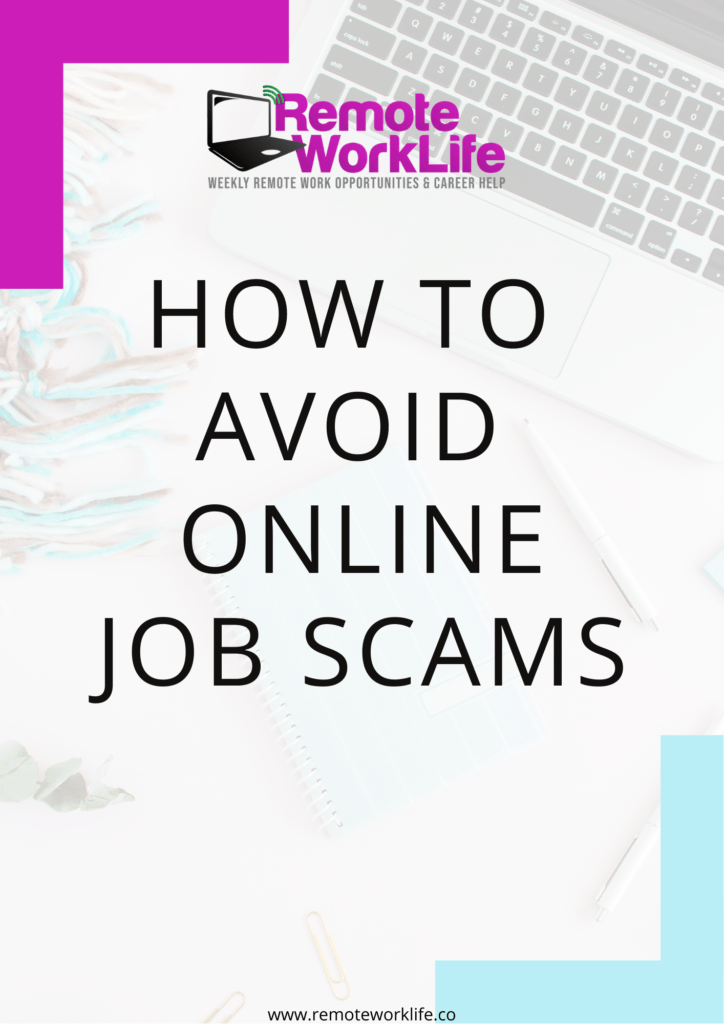Sometime in December last year, I came across an article on USA Today that talked about the experience of Krystelle Goodman, who got scammed after getting working for an online job that engages in reshipping. The scope of her work involves receiving packages for customers (who were said to be in countries that have no access to Amazon), opening them to confirm that the items are in good shape, going online to claim and print a shipping label, and repackaging the items in a new box before shipping them elsewhere through FedEx or UPS. Sounds easy for a remote kind of work, right? But it spelled disaster for Krystelle when the scammer ghosted and did not pay her anything at all.
As your favorite remote work enthusiast, I’m warning you right now: Anything in the realm of reshipping an item is NOT legitimate, and it’s a total scam all day, every day! In fact, Krystelle could have gotten into some serious trouble with the authorities. You see, these scammers were actually laundering money they stole from people by buying items and deceiving people like Krystelle who are looking for decent-paying remote work to reship the items to other countries. And you could be in big trouble, too, if you fall for such online job scams! I genuinely don’t want something like that to happen to you when I know that what you want is decent remote work that pays you honestly for your efforts. So taking off from Krystelle’s experience, I think it’s best as early as now to understand when an online job is one big scam and how to verify that a company offering remote work is legitimate. I made a video just for you to make sure you have additional information to help you avoid online job scams. You can check it out here:
There are many scammers out there. And in this time of the COVID-19 pandemic that has introduced so many of us to this new way of remote work, these scammers are finding creative ways of deceiving people such as posing themselves as legitimate companies on third party websites like Indeed. It is only right that we take proactive steps to be extra vigilant. Now let’s get to know these online job scammers and how they are different from legitimate companies.
Characteristics of scams
1. You never applied for the job. The scammer sends you an email first, telling you you’ve been hired. Don’t give them any excuse. You may have uploaded your resume on job sites like Indeed and made it visible to potential recruiters, but getting contacted over something you never applied for should already be a red flag for you.
2. A job opportunity is too good to be true. Scammers dangle lucrative offers, particularly money, so that they can bait you in exchange for very simple jobs. Be careful. Don’t think immediately you’ve hit the jackpot and don’t easily throw caution to the wind.
3. Scammers don’t interview you. Learning from Krystelle’s experience, she never spoke to anyone in the “company” since everything was just through text or email. Based on what I know as an HR professional for several years, the only time when there may not be an interview is when you are pursuing a 1099 call center job that may require an extensive assessment in place of an interview. Generally, after a job interview and you receive communication that you got accepted, you get to speak to someone from the company virtually or in-person who will orient you or train you further about your job.
4. No background check. Since legitimate companies want to keep their interests intact, they will do a background check on you to learn more about who they are going to deal with and mitigate potential risks in the process. Even 1099 call center companies do background checks. Scammers do the opposite, and that should be a tall tale sign for you.
How to verify that a company is legitimate
1. Do a Google search. And make it as comprehensive and as substantial as possible! Don’t easily lose patience. A few minutes of wide search will do wonders! Remember that a potential long-time career in remote work is at stake, and the last thing you want is to fall victim to a scam.
2. Visit the company’s website. If it’s barebones or looks hastily made or has several typos, those should be warning signals for you. The positive signs of a legitimate company include a professional look of the website and the visible address and active phone number—details that you can take back to Google Search for another round of verification.
3. Check out their social media, especially LinkedIn, and see if they’re on Glassdoor, too. The LinkedIn platform is an industry-standard among HR professionals and recruiters. If you can’t find the company or any of the company employees on LinkedIn, I advise you to move on to another company. Glassdoor is another way of finding and verifying further the online presence of the company that offers the type of remote work you’re interested in.
Get your checklist at no cost Just to make sure you don’t forget any of these steps, get your checklist on how to avoid online job scams and verify legitimate remote work—at no cost! You can use this to proactively and vigilantly protect yourself from scammers each time you try to apply for an online job.

What’s your process for verifying when an online job is a scam or a legitimate one? I would love to hear from you.
Talk soon, Delilah

